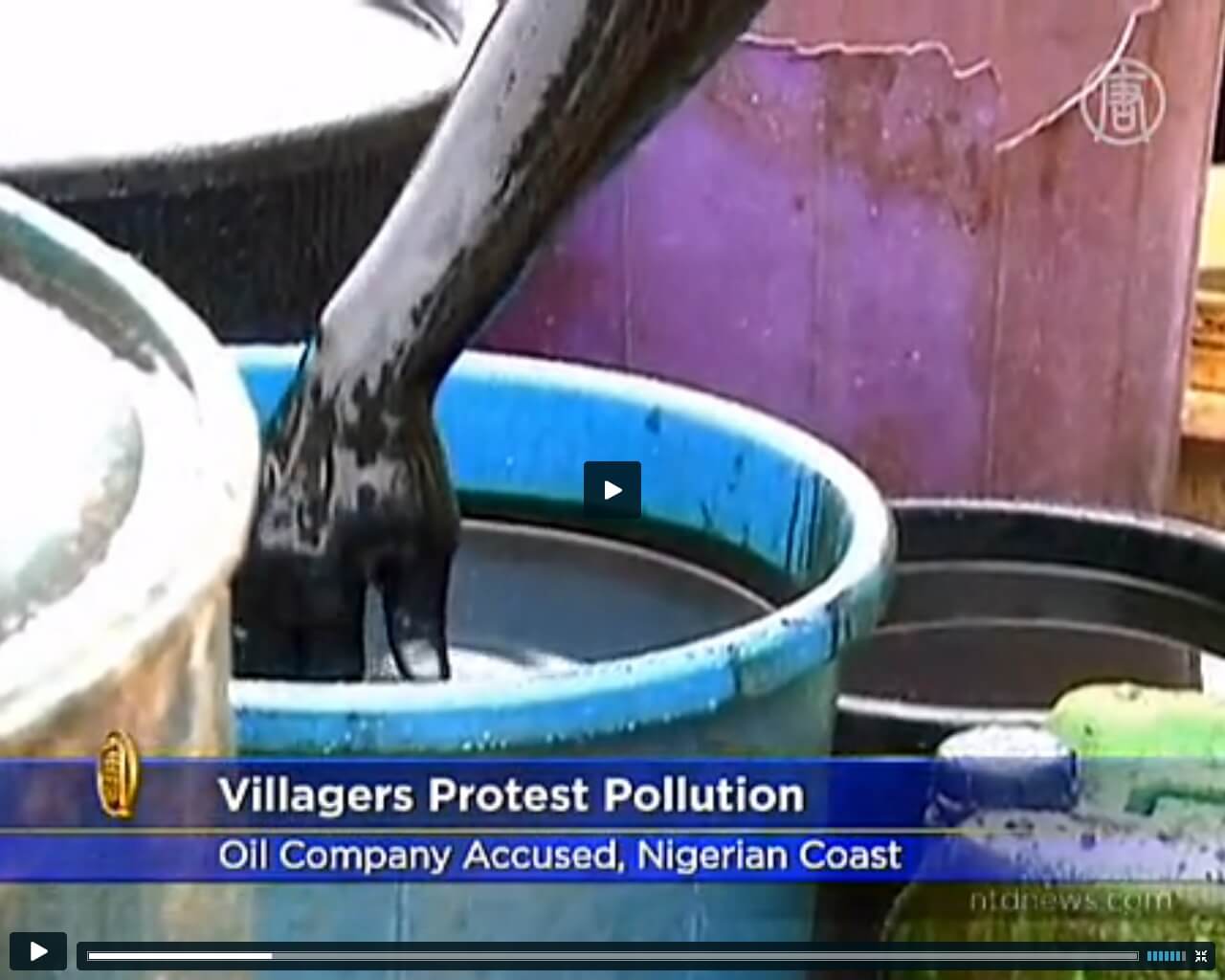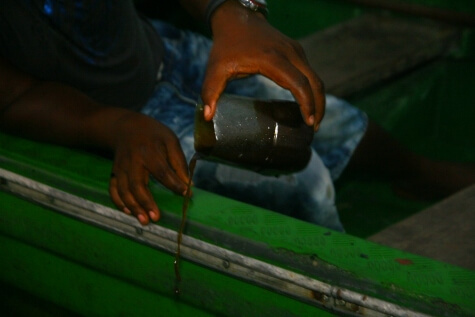
Shell’s major oil spill at the offshore Bonga facility in Nigeria is threatening the livelihoods of at least 13 different coastal communities, reports Reuters. As thick crude oil continues washing up on Nigeria’s shoreline, Shell is denying responsibility and claims that “non-Bonga oil” from a third party spill is to blame. A local resident from Bisangbene told the Vanguard newspaper that Shell’s Bonga spill had ruined livelihoods in the fishing village. Mr. Goodnews Gereghewei said:
our occupation is predominantly fishing and our fishermen have withdrawn from the sea because of the massive oil spill due to fear of being roasted alive since they fish mostly at night with local lamps.
The oil spill has coated beaches “in a film of black sludge with a rainbow tint,” sparking angry local protests.
So far, the environmental impact has also killed fish, contaminated drinking water and damaged local fishing boats. Nigerian officials have suspended fishing off the coast due to the threat of heavy oil contamination from Shell’s Bonga spill. Fishers from Akwa Ibom in the eastern Niger Delta have also been affected. A second leak has also been confirmed on Shell’s onshore Nembe pipeline.
It is important to dwell on this for a moment, because historically, offshore marine spills are the largest source of oil spilled in Nigeria. In 1979, a rupture at Shell’s Forcados terminal spilled 570,000 barrels into the estuary and creeks. That’s more than double the size of the Exxon Valdez disaster. But despite the huge risks involved in offshore drilling, many marine spills in Nigeria go unreported. On the high seas in the Gulf of Guinea, far from the eyes of regulators and environmentalists, routine spills, discharges, leaks and waste dumping occur with impunity. This is not a problem unique to Nigeria; crumbling rigs and leaking tankers are a common problem in the UK North Sea, for example.
The difficulty of monitoring Nigeria’s offshore spills is further compounded by the fact that companies like Shell under-report the frequency, size and impact of oil spills.[1] There are several possible reasons for this. In the case of the Bonga spill, Shell will doubtless want to avoid potentially huge compensation claims from the large number of local residents in the 13 villages who say they are affected. The upshot is that Shell has an incentive to withhold crucial data, such as how many barrels of oil were actually spilled.
Until the volume of the Bonga spill and its impacts are independently verified, it is entirely reasonable to question Shell’s figures. The spill could be bigger than Shell has so far admitted, and the oil hitting the shore could belong to Shell’s Bonga facility. Shell should not be the only one taking samples of the crude oil on the coastline for analysis. This task should to be done independently, with full oversight of the Nigerian regulators.
[1] Between 1998 – 2009, Shell, which accounts for approximately 50% of Nigeria’s oil production, reported an average of 41,000 barrels spilled per year. However, independent studies estimate that the total volume of oil spilled during this period averaged around 115,000 – 200,000 barrels per year. See Rick Steiner (2010): Double Standards, p15.
